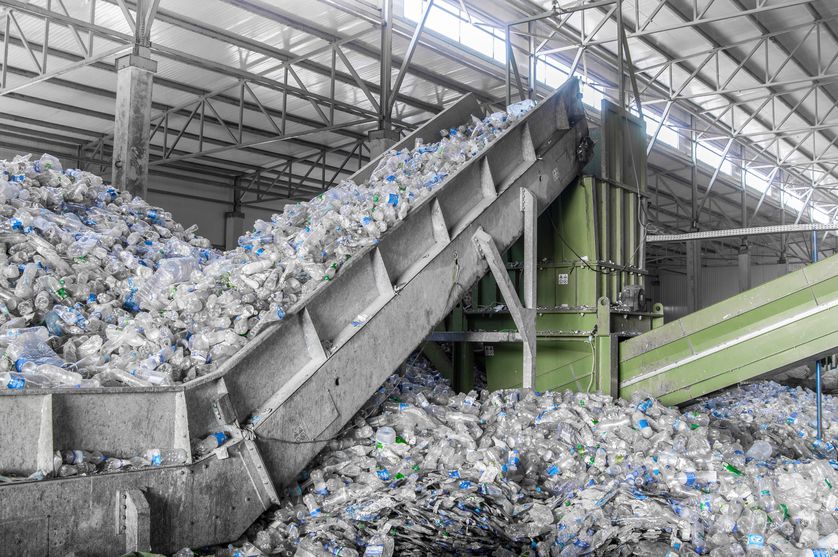In the fight to improve global recycling efforts, scientists may have a new weapon in a hungry mutant enzyme.
In a study published in the journal Nature, the research team behind the discovery say the new enzyme is capable of breaking down the polyethylene terephthalate (PET) used in soda bottles, textiles and packaging into raw, pristine materials in a matter of hours. Unlike traditional recycling of PETs, which are generally of lower-quality and can only be used for products like clothing and carpets, this new process results in durable base materials suitable for new food-grade bottles.
"It makes the possibility of true industrial-scale biological recycling of PET a possibility," professor John McGeehan, director of the Centre for Enzyme Innovation at the University of Portsmouth, told The Guardian. "This is a very large advance in terms of speed, efficiency and heat tolerance. It represents a significant step forward for true circular recycling of PET and has the potential to reduce our reliance on oil, cut carbon emissions and energy use, and incentivize the collection and recycling of waste plastic."
If McGeehan's name sounds familiar, it's because he was the lead researcher on a breakthrough in 2018 that used a similar enzyme to break down plastic over the course of several days. Carbios, the French company behind the latest advance, applied mutations to their variant, known as leaf-branch compost cutinase (LLC), to improve both the stability and efficiency of the enzyme. According to the study, 200 grams of PET in a small demonstration reactor was reduced by 90% to their original chemical building blocks in just 10 hours.
While the new enzyme only breaks down PETs and not polyethylene (shampoo bottles, plastic bags) or polystyrene (insulation, packaging), it will nonetheless have a major impact on limiting pollution and helping to improve recycling capabilities around the globe.
"It's a real breakthrough in the recycling and manufacturing of PET," said Dr. Saleh Jabarin, a member of Carbios' scientific committee in a company statement about the discovery. "Thanks to the innovative technology developed by Carbios, the PET industry will become truly circular, which is the goal for all players in this industry, especially brand-owners, PET producers and our civilization as a whole."
Biological recycling at an industrial scale
 Plants around the world specializing in recycling polyethylene terephthalate (PET) could soon benefit from adding Carbios' technology to their workflow. (Photo: Alba_alioth/Shutterstock)
Plants around the world specializing in recycling polyethylene terephthalate (PET) could soon benefit from adding Carbios' technology to their workflow. (Photo: Alba_alioth/Shutterstock)
In an effort to utilize the enzyme at an industrial scale level, Carbios has partnered with companies such as Pepsi, Nestle and L’Oréal to accelerate development. Their goal is to have a demonstration plant up and running outside Lyon, France, by 2021, with a full international rollout by 2025.
While the plastic still needs to be ground up and heated to allow the enzyme to break down the PETs, The Guardian reports the process is just 4% of the cost of virgin plastic made from oil. Based on the companies already aligned with Carbios, it's clear that there's demand for a recycled end product as good as the original.
"This is very exciting," McGeehan added to Science Magazine. "It shows this is really viable."
This mutant enzyme recycles plastic in hours
Incredible enzyme is capable of breaking down the PET in plastic bottles into raw materials in as little as 10 hours.
By: Michael d'Estries
Title: This mutant enzyme recycles plastic in hours
Sourced From: www.mnn.com/green-tech/research-innovations/blogs/mutant-enzyme-discovered-recycles-plastic-hours
Published Date: 04/14/20

No comments:
Post a Comment